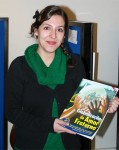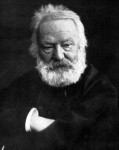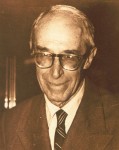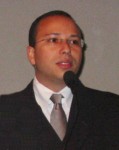The Social Effect of Prayer

Ana Serra
In an interview with Portuguese journalist Ana Serra, I commented that the meaning of Fraternity and Ecumenical Spirituality puts us in a healthy and intimate contact with ourselves and with the Creator of the Universe and His creatures, which constitute the perfect altar where one must adore Him. I emphasized this on 11/5/1983 in a speech I made during the laying of the cornerstone of the Legion of Good Will’s headquarters in São Paulo, Brazil, at the 8th Legionnaire Couples Congress. In my book Ao Coração de Deus — Coletânea Ecumênica de Orações (1990) [To God’s Heart – An Ecumenical Collection of Prayers] I said: When one prays, the Soul breathes, enrichening human existence. Saying a prayer is essential to uncloud the horizon of the heart. This is within the reach of all of us, inasmuch as we possess the innate capacity to meditate in order to choose the appropriate path and solve the troubles that begin in the Spirit and are then manifested in the human body, often in the form of an illness, and in the social field.

I wrote in Reflexões da Alma [Reflections of the Soul] that anyone, whether religious or atheist, who knows how to enjoy the silence of the soul can bring forth from within themselves all the riches that the world cannot offer them, beginning with the Peace of spirit that God promised us and that no one, besides Him, can fully provide us with, because we still do not know it in its entirety: “My Peace I leave with you; my Peace I give you. I do not give to you the peace of the world. I give you the Peace of God, which the world cannot give you. Do not let your hearts be troubled and do not be afraid, for I will be with you, each and every day, until the end of time” (The Gospel of Jesus according to John 14:27; and Matthew 28:20). There is no serious thinker, with the usual exceptions, who does not need to enter, even if now and then, an environment that inspires reflection, no matter the name you wish to give it. This not only favors psychic quietude, but also somatic serenity.

An idea whose time has come

Victor Hugo
In my book Somos todos Profetas (1999) [We are all Prophets], I write: We are now body, but we are originally Spirit. The nation that understands and administers this Truth will excite and govern the world during the third millennium. And if anyone considers this reasoning to be delirious, I present them with this aphorism from the genius Victor Hugo (1802-1885): “Those who affirm today that something is impossible to be achieved are tacitly placing themselves next to those who are destined to fail.”

Pietro Ubaldi
Very much to the point, Italian philosopher and sociologist Pietro Ubaldi (1886-1972), a correspondent of Einstein’s and a great admirer of the Legion of Good Will—he defined it as “a new movement in the History of Humanity. It places Brazil in the forefront of the world”—, in one of his conferences remembered this other saying by the giant from Besançon: “There is one thing stronger than all the armies in the world; and that is an idea whose time has come.”

Ricardo Monezi
Today, even science believes that spirituality can reduce the risk of diseases considered to be serious or incurable. In an interview with the Super Good Will Communications Network in 2009 on this subject, researcher, professor, and psycho-biologist Ricardo Monezi from the Institute of Behavioral Medicine of the Federal University of São Paulo (UNIFESP) declared: “At the present time we already have several reports in science that show that a person who thinks good thoughts, is happy, and has good feelings, has a body defense potential much greater than a pessimistic person. . . . When an optimist is vaccinated, they develop antibodies much faster than a pessimist. They also have many more chances of getting through a chronic illness than a pessimist.”
Therefore, a healthy Spirit is preventive medicine for the body.
The comments do not represent the views of this site and are the sole responsibility of their authors. It denied the inclusion of inappropriate materials that violate the moral, good customs, and/or the rights of others. Learn more at Frequently asked questions.